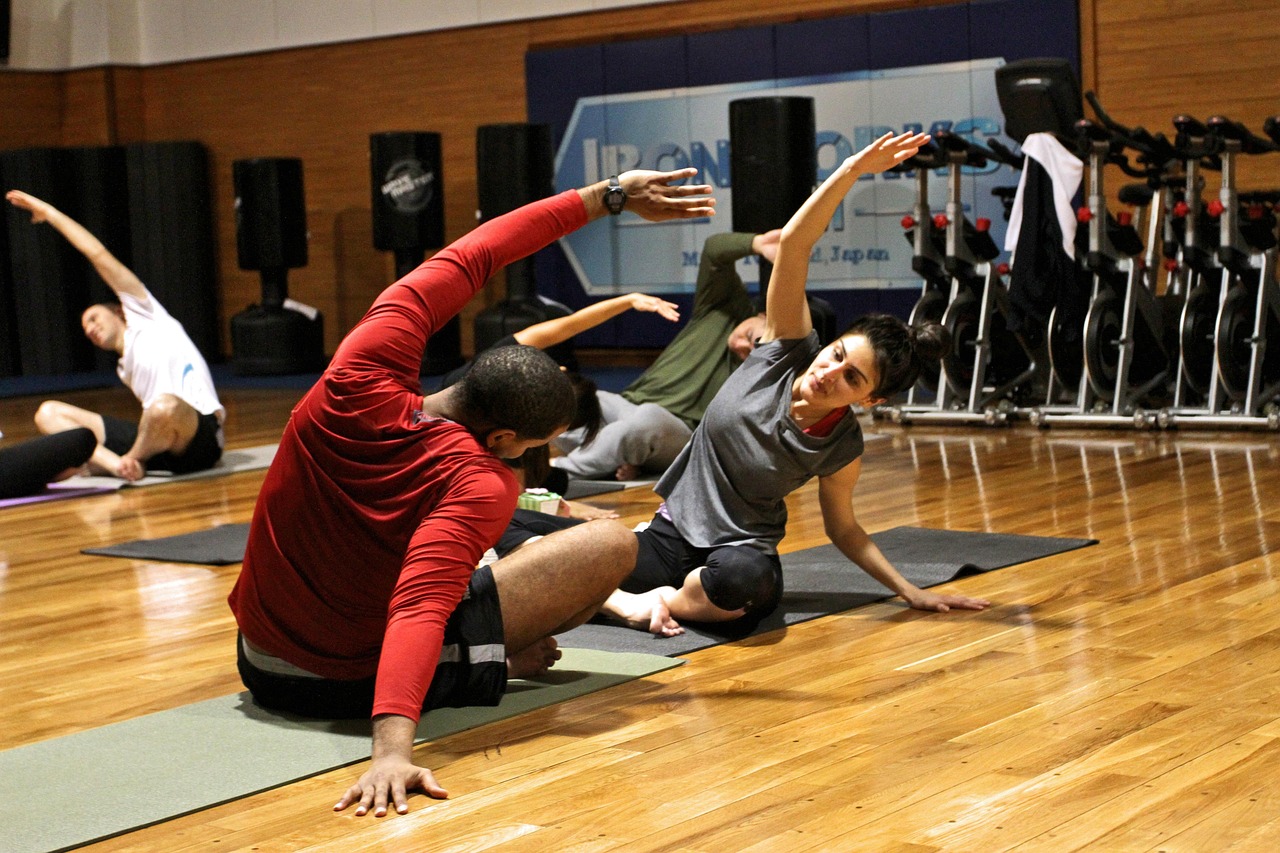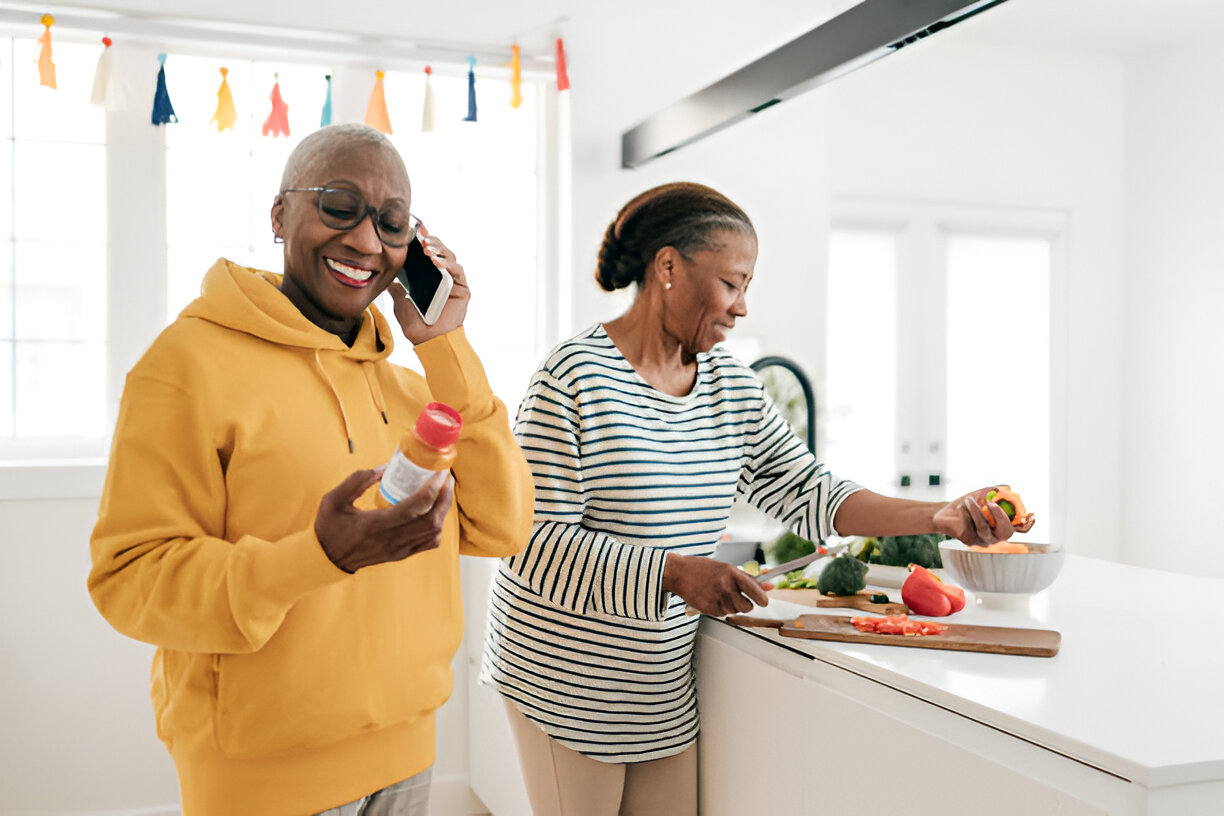
I don’t know what I was expecting, exactly, when I set out on a month-long project to ask my nearest and dearest what I could do to show my love. I imagined I might find myself staggering around with apologetic baskets of scones (“You said cranberry, right?”), scrubbing the toilet with a mascara wand while my husband looked on, nodding, “Yes, that’s better.”
And if I vowed to live this better-loving life for 30 days, I imagined, it would be like a juice fast: grueling, but afterward I’d be clean as a whistle.
And I was wrong about all of it, including the afterward part — that this is the kind of experiment that would even have an afterward.
How It All Started
Let me back up. What happens first is this: I am skimming Zen teacher and executive coach Marc Lesser’s book
“Less: Accomplishing More by Doing Less,”
scouting for easy tips — the holistic-productivity equivalent of those exercise belts that let you jiggle the fat off while eating snack cakes.
Instead I stumble on a quote from Vietnamese Zen master Thich Nhat Hanh, who recommends that we ask our closest friends and family — brace yourself — “Please tell me how I can love you better.”
It is such a simple idea. But it blows me away.
Instead of spending your energy imagining what everybody wants, Lesser writes, you can simply ask.
“It’s a radical question,” Lesser explains when I speak with him. “Radical in that it’s so disarming. And it’s a fundamental shift from the world of me.” Indeed. When we think of how to improve our relationships, we tend to think of how other people can make us happy — a happiness that can get lost on its winding path through criticism and coercion.
If this were a proper self-help story, I would promise “10 Ways to Get Yourself Heard” — but it’s not. It’s about asking and listening, then paying attention to your own behavior.
Kill me. My own behavior! Like the way I can be a leaky faucet of nagging (drip, drip, drip), or one of those flowering cactuses that looks pretty until you brush against it and get a rash.
“I look nice?” I grump at my husband, standing in front of him in a new dress. “I want to be beautiful.”
“You’re beautiful,” he says, and I sigh and turn away. But love turns out not to be something you can stab up with a pitchfork, and lunge after with a net. Maybe all you can do is give it.
Please Tell Me: How Can I Love You Better?
I commit myself to a month of unselfish loving, and I start with my children at the dinner table. They look at me over forkfuls of pasta.
It’s a funny thing to ask kids, isn’t it? I mean, every sandwich cut into triangles is an act of love, every blanket tucked. And yet I can be so impatient with them.
More words of wisdom from Thich Nhat Hanh: “When you plant lettuce, if it does not grow well, you don’t blame the lettuce. You look into the reasons it is not doing well. It may need fertilizer, more water, or less sun. You never blame the lettuce.”
I sometimes blame the lettuce. Ten-year-old Ben answers first. “I think this isn’t the kind of thing you mean. But about my bedtime — not having to go to bed at a certain time would be better.” He laughs and adds, “I guess that’s tricky, with parents and kids. Like, ‘You could love me better by giving me more candy.'”
I say, “Let me think about the bedtime issue,” and mean it. But I feel a little smug. If it gets no harder than this…
That feeling lasts about 15 seconds because 7-year-old Birdy (pictured here, with me) looks worried. “Will it hurt your feelings, Mama?”
My heart blooms in my chest. “No,” I answer. “I’m open to whatever you might say.”
“Well,” she says, “maybe if we’re doing something you don’t want us to? Instead of speaking sharply to us? You could give us a gentle reminder. Like Caryl-Rose.”
Caryl-Rose is our lovely neighbor, and when she wants to correct her dogs’ behavior, she calls their names in a slow singsong. “Heyyy, Biiirdyyy,” I imitate now, and she smiles and nods.
I am trying not to feel like the person who’s been stomping around yelling at the lettuce, because already I need to listen to Birdy again: “And also? It would be nice if you came outside with me more. Especially if it’s a bear season.” I pledge to try.
Michael’s next. Ask your husband how you can love him better, and if he’s like mine, he will have an idea that rhymes with “Joe blob.” But press him, and he might get serious.
“Oh, you know,” he says shufflingly. “Stuff I know you’re already working on — being less critical of me, less inclined to blame.”
In just the past 24 hours, I have been irritated with him about not making dinner (“There’s some cheese,” he’d offered vaguely) and about how he only videotapes the kids’ weird school events — pioneer plays and xylophone concerts — rather than the everyday stuff I want to remember. (Could I not just say, “Thank you, my darling, for recording our family’s life”?)
It is hard now to be still and present, to listen courageously and without defensiveness, but I try. Because otherwise, what is the point of even asking the question?
I had asked Lesser about the vulnerability this endeavor requires, and he had surprised me (and himself) with a sports metaphor: “It’s like realizing suddenly that you don’t need the pads and the helmet,” he says, and then laughs. “And also that you’re not playing football.” I try to realize that I am not playing football.
But There Are Lapses
On a day of complex child-care algorithms, I’m rushing to work and Michael gets back from yoga, sweaty and smiling, and 20 minutes late. I’m furious.
“I lost track of the time,” he says, mellow. “I didn’t have my phone.”
“Of course,” I say, not kindly. “Feel free to Savasana my life away.”
I watch myself carp the way you watch your guilty hand dip and dip back into the chip bag. “Do you want to know how you could love me better right now?” Michael teases, and I leave the house — not slamming the door exactly, but shutting it hard enough.
I am up to the neck in love, but my parents are visiting for the weekend, and I steel myself to ask them, shy about my hippy-dippyness. These are supremely loving, but supremely no-nonsense people; love happens, and the less corny blather about it, the better.
An Opportunity for Clarity
Please tell me, how can I love you better? “What can I do to be a better daughter?” I add.
My dad dismisses my project as “one of those awful parlor games,” but he shakes his head and says, “Nothing.” He goes on: “I worry about the burden you feel to care for us.”
This almost makes me laugh. For one thing, “caring for” them seems to involve no more than opening the door when they arrive for holidays with presents and bags from Zabar’s; for another, my parents’ lives are so full, they often have to give up dinner plans or theater tickets when we come to town.
But my dad’s face is ringed with the white halo of his hair, careworn and beautiful. Here it is, an opportunity for clarity: I get to reassure my busy, happy parents that it’s not an obligation — I simply crave their company.
Next up is my brilliant, kind friend Lydia. My guilt sits in my chest like a flock of dead birds. I know what she’s going to say: that I disappear when I’m hunkered down with work or family, that I don’t call enough.
But she laughs when I ask the question and says she can’t think of anything. When I tell her how I thought she was going to respond, she says, “Gosh, no. We’re both busy. This works great for me.”
The dread lifts away. It’s Lesser’s theory in practice: My false assumptions haven’t solved a problem. They’ve been the problem.
With Love Comes Joy
Michael chars our burgers one day, forgets to spray the grill the next, and I wrap my arms around him while he scrapes stuck salmon with a spatula, thank him for making dinner. He smiles at me and says, “You are really loving me better.” I am!
I explain to Night-owl Ben that I worry he’ll be tired if he goes to sleep later than 10, but I let him try it, and he tucks himself in only a little later than I would have.
I remind Birdy gently not to clutch at our pussycat when he’s scrabbling for freedom (Heyyy, Biiirdyyy!), and in a gross public restroom, while she fills the stall with chatter, I check my first impulse — which is to sigh, “Wake me when you’re done” — and remind her gently why we’re there (Peeee, Biiirdyyy!).
I try to join her outside more, and one day when she’s taking a bath, I remember her fearfulness and ask if she’d rather I work upstairs, to be closer. “I’d love that!” she says.
What an easy gift to give: stepping toward her needs, instead of waiting to be pressed up against them. I think this might be called love.
I spend the month happier than I’ve been in a long time: I’m sleeping better without my midnight bouts of regret and resolve; the kids are more relaxed; Michael whistles in the shower; the weather even seems sunnier — which may be a metaphor or an actual unrelated climatological phenomenon.
I tell Lesser this, and he warns, laughing, “I’m going to be very Zen for a minute. I think there’s something about ‘please tell me’ — just wanting to know, and listening. It doesn’t promise that anything’s going to change — but the moment you ask the question, everything has changed.”
And I understand, I do. Because it’s not the 30-Day Shred or the 30-Day Cabbage Soup Diet. It’s not finite, and it’s never finished. It’s a leap of faith, a leap toward love — and it’s our very life’s work. Turn the clenched fist of your heart into an open hand, go ahead, and offer it.






















